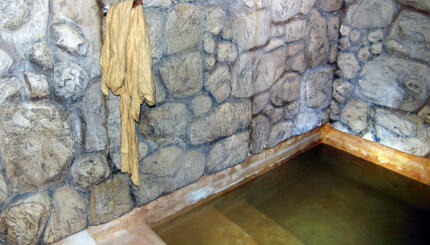Commentary on Parashat Bamidbar, Numbers 1:1-4:20
Just a year removed from the shackles of slavery in Egypt, the Israelites find themselves perched at the edge of the wilderness. Twelve tribes prepare to navigate the barren landscape that lies before them in the hopes that it will lead to a land of promise. Before departure, God instructs Moses to take a census of the Israelite community: “Count the heads of all in the tribes of Israel.”
The directive, however, does not apply to every soul in the camp, but rather to “men, aged 20 or older, who have the ability to bear arms.” This addendum elucidates the true purpose of the census, which is not to count the entire population, but to serve as a form of military conscription. As commander-in-chief, Moses must know the extent of his forces should an external threat arise.
This law precludes the nation from sending its minors to war and thus sets an important precedent in that it protects the lives of society’s youngest members. Unfortunately, the same cannot be said for many nations plagued by ongoing military conflict today.
The Problem
No fewer than 21 armed forces in as many countries have violated U.N. international humanitarian laws by reinforcing their war efforts with children under the age of 18. Human Rights Watch estimates that 200,000 to 300,000 children currently serve in government forces or rebel groups around the world, some as young as 8 years old. These children are forcibly recruited on pain of death, many abducted from their homes in the middle of the night. Others are made to believe that military service is the only means of escape from their current state of poverty.
With your help, My Jewish Learning can provide endless opportunities for learning, connection and discovery.
Rebel groups especially prey upon children that have been displaced from their homes and have watched family members die before their eyes. Given their physical and emotional immaturity, these children are highly susceptible to brainwashing and abuse. Once innocent, they are conditioned to beat and kill civilians, burn down refugee camps, even commit atrocities against their own family members.
A Call to Action
Although the Western media has highlighted this issue in recent Hollywood films such as Blood Diamond and autobiographical memoirs like Ishmael Beah’s A Long Way Gone: Memoirs of a Boy Soldier, the act of telling alone will not stop child soldiering. This harrowing practice must be fought not only with increased exposure, but with action and advocacy.
Intervention by peacekeeping forces is rare, but not impossible. In some countries, child soldiers are identified, demobilized and taken to rehabilitation centers that help them locate their families, return to school, receive vocational training, and re-enter civilian life. AJWS has partnered with several grassroots organizations, such as the United Movement to End Child Soldiering (UMECS) in Uganda and Ajedi-Ka in the Democratic Republic of Congo, which focus on the identification and reintegration of former child soldiers into society.
Once found, these young adults are provided with extensive psychological counseling as well as training so that they can help other children escape the stranglehold of warfare. Many more efforts such as these are necessary to address the epidemic of child soldiering. We all bear the responsibility to aid and support the struggle to end this inhumane practice.
“Redeeming” Our Children
In the latter half of Parshat Bamidbar, Moses redeems 22,273 first-born male Israelites whom God had set aside as “personal property” when smiting the first-born Egyptians, declaring, “Every first-born in Israel shall be consecrated to Me.” Moses fulfills the command by offering God a substitution in two parts: 22,000 Levites will stand in place of the Israelite first-born males, and the price of 273 will be paid with five shekels of silver per head.
This act of redeeming the first-born son, called Pidyon Haben, informs our understanding of the imperative of adults to protect the rights of children. Today, some families symbolically practice Pidyon Haben by offering a small donation to their synagogue. Though the original framework is no longer at play in some Jewish communities, its moral implications are universal: an elder must do that which is necessary to “redeem” the child in his or her care.
In today’s world of interconnectedness, where our shared responsibility extends to the neediest of God’s children, we can transform the institution of Pidyon HaBen to include all those who have had their childhood stolen.
It is not enough to redeem our own children by providing them with food, shelter, clothing, and the gift of education. We must use our resources — be they the five extra shekels jingling in our pockets or the quick 10-digit phone call to our elected officials– to help redeem child soldiers in the most war-torn countries on earth. All of us, old and young, male and female, have the ability to arm ourselves with love and compassion, so that more than 200,000 lost souls might be restored and find their way home.
Provided by special arrangement with American Jewish World Service. To learn more, visit www.ajws.org.
Pidyon HaBen
Pronounced: pidYONE hahBENN, Origin: Hebrew, the ceremony of the redemption of the first-born son, traditionally held 31 days after the child's birth.


